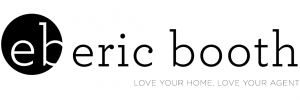Closing Costs: What to Expect
The process of looking for and deciding to purchase a home is a complicated one, to say the least. What’s more is that a lot of people find that they are even more overwhelmed when it comes to figuring out and taking on closing costs. Closing costs are all of the fees and payments that are due when you purchase a home. They are the charges of the lenders and any third parties involved throughout the entire closing process.
Who is Responsible for Paying Closing Costs?
While your agents and lawyers are there to help you get through all of this without, or with as little, complication as possible, you still need to understand the basic logistics of who is responsible for what. Ultimately, what are you going to be expected to pay? This varies a bit from one transaction to the next, depending on negotiation and whatever final agreement is made, but let’s look at the most typical scenario and break that down. Here’s a list of what both the seller and the buyer can expect to be responsible for:
The Seller’s Responsibility at Closing
The seller can generally be expected to pay for the following:
- A standard CLTA owner’s title insurance
- The real estate commission
- 50% of the escrow fee
- The notary fees
- The demand fees
- Document preparation fee for the deed
- Documentary transfer tax (about $1.10 per $1,000 of the sales price)
- Any city transfer or conveyance tax (according to the contract)
- Any bond or assessments (according to the contract)
- Any and all delinquent taxes
- Any unpaid homeowner’s dues
- Any FHA or VA loan fees required by the buyer’s lender
- The payoff of all loans in the seller’s name (or the existing loan balance if being assumed by the buyer)
- The interest accrued to the lender being paid off, statement fees, reconveyance fees and any prepayment penalties
- The termite inspection (according to the contract)
- The termite work (according to the contract)
- The home warranty (according to the contract)
- Any judgment, tax liens, etc. against the seller
- The recording changes to clear all documents of record against the seller
- The tax proration (for any taxes unpaid at the time of transfer of title)
- The seller’s portion of the sub-escrow fee
- The homeowner’s transfer fee
The Buyer’s Responsibility at Closing
The buyer can generally be expected to pay for the following:
- The title insurance premiums (ALTA loan policy)
- The escrow loan tie-in fee
- 50% of the escrow fee
- Document preparation (if applicable)
- The notary fees
- The recording charges for all documents in the buyer’s name
- The termite inspection (according to the contract)
- The tax proration (for the date of acquisition)
- All new loan charges (except for those required by the lender for the seller to pay)
- The assumption or change of records fees for the takeover of the existing loan
- The beneficiary statement fee for the assumption of the existing loan
- The inspection fees (e.g. roofing, property inspection, geological, etc.)
- The home warranty (according to the contract)
- The city transfer or conveyance tax (according to the contract)
- The fire insurance premium for the first year
- The buyer’s portion of the sub-escrow fee
Now that you have a general understanding as to what you can expect to pay during the closing process, our hope is that it will seem a little less daunting and won’t take you by surprise. Remember, if you have any questions or concerns during the process, don’t be afraid to give us a call. After all, that’s why we’re here!










